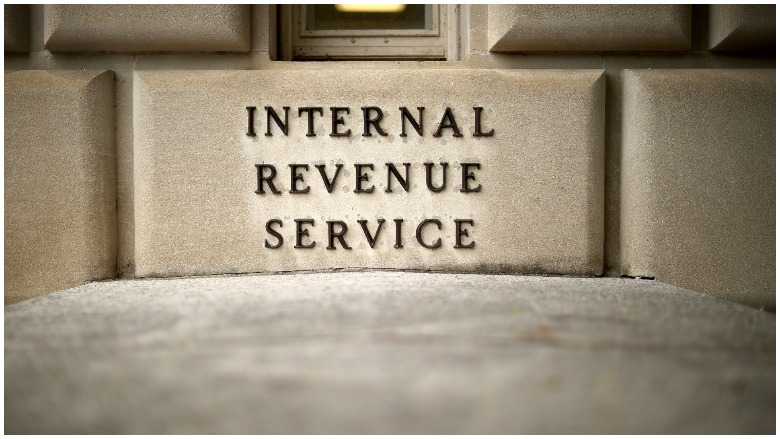
Getty The IRS said that checks issued to dead people do not need to be returned.
Be wary of what you throw in the trash, because it could just be your stimulus check.
Over the past few weeks, reports have surfaced of individuals who have thrown away their stimulus payments, which have come in the form of prepaid debit cards called Economic Impact Payments (EIP) cards. Since they have come in plain envelopes from Money Network Cardholder Services, according to Market Watch, many citizens have mistaken their payments for junk mail or a scam.
Read on to learn more about EIP cards and what to do if you accidentally threw yours away.
4 Million Americans Will Receive EIP Cards
According to KFox14, the Treasury Department began mailing EIP cards to 4 million Americans last week.
With these prepaid debit cards, recipients can make purchases online and at any retail location where Visa is accepted. As The Washington Post points out, they can also receive cash from in-network ATMs and transfer funds to personal accounts with no fee.
On Wednesday, the IRS released a statement about EIP cards, highlighting the fact that the debit cards “arrive in plain envelopes from ‘Money Network Cardholder Services'”.
The IRS also mentions that you cannot specifically ask them to send the Economic Impact Payment as a debit card. Those who don’t receive a direct deposit will receive a paper check. In only a “few cases” will a debit card be issued.
The IRS writes, “The determination of which taxpayers receive a debit card will be made by the Bureau of the Fiscal Service (BFS), another part of the Treasury Department that works with the IRS to handle distribution of the payments. BFS is sending nearly 4 million debit cards to taxpayers starting in mid-May. At this time, taxpayers cannot make a selection to receive a debit card.”
The EIP card website offers instructions on how to activate your card.
Scams Related to Economic Impact Payments
It’s understandable that some individuals have mistaken their EIP card for a scam; after all, the IRS itself has urged taxpayers to be on the lookout for scams related to stimulus payments.
They write, “People should watch out for scams using email, phone calls or texts related to the payments. Be careful and cautious: The IRS will not send unsolicited electronic communications asking people to open attachments, visit a website or share personal or financial information. Remember, go directly and solely to IRS.gov for official information.”
One Virginia man, Eric Green, tells The Washington Post that he was confused about the legitimacy of the payment he received in the mail. “The letter we received said it came from the Money Network Cardholder Services in Omaha, Nebraska,” Green said. “Is it a scam or legitimate? There were a number of steps involved in converting the card into money to be put in our bank. We wonder why we just didn’t receive a government check in the mail like other people have received?”
For those who have accidentally thrown away their stimulus debit card, you should call customer service at 800-240-8100 to report your lost or stolen card. Your card will then be deactivated.
The cost of a new replacement card is $7.50, according to KFox14. Expedited shipping will cost $17.00.
Stimulus payments can still be tracked through the Get My Payment web portal.
READ NEXT: COVID-19 Stimulus Checks: How Many IRS Debit Cards Are Being Sent?